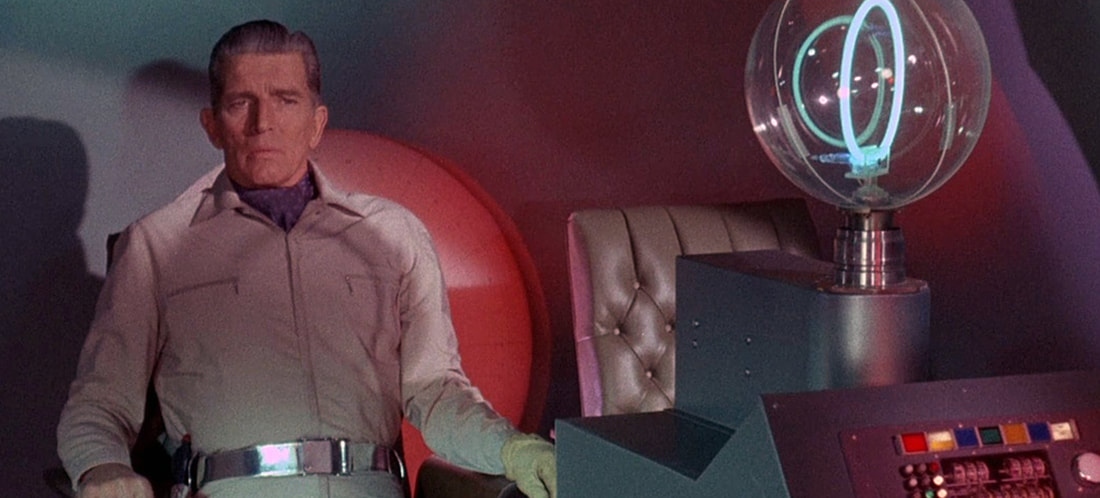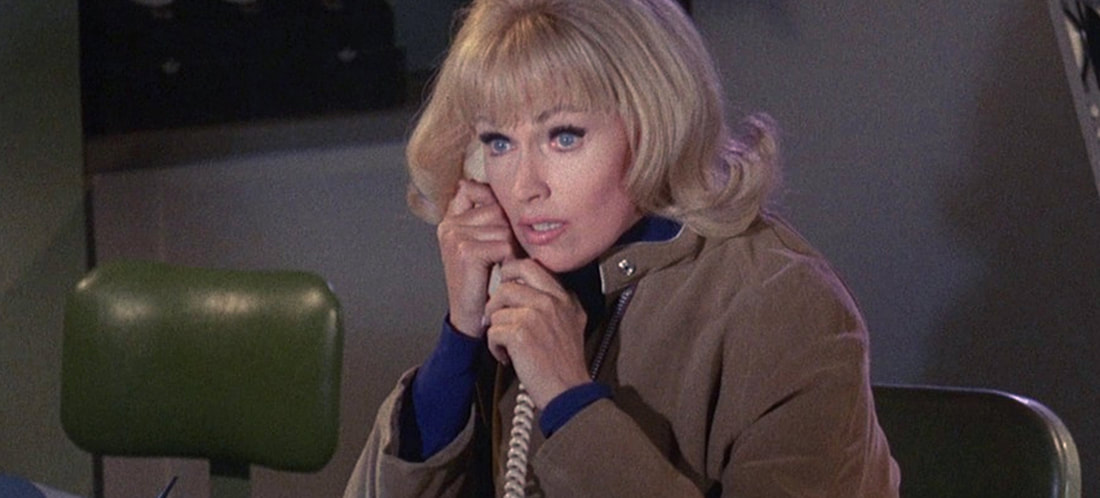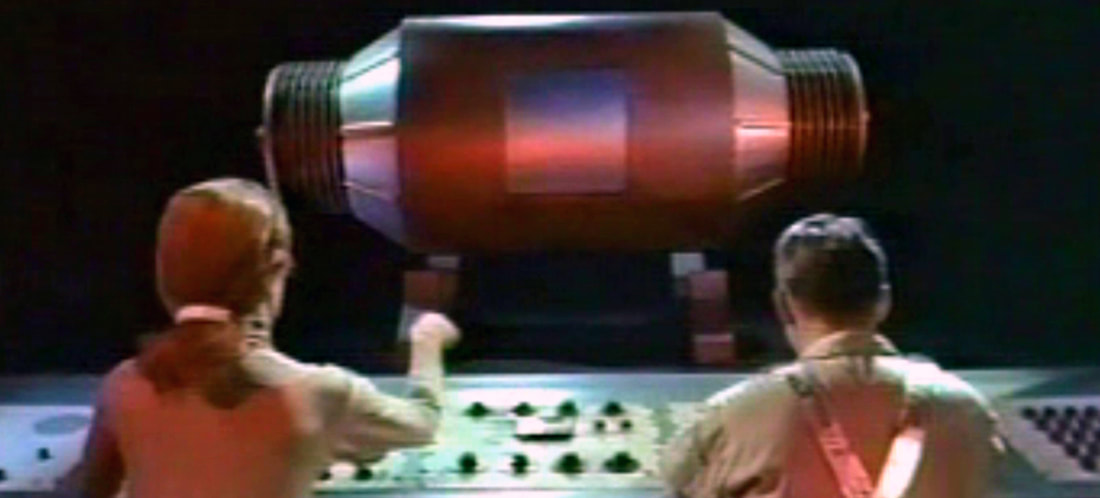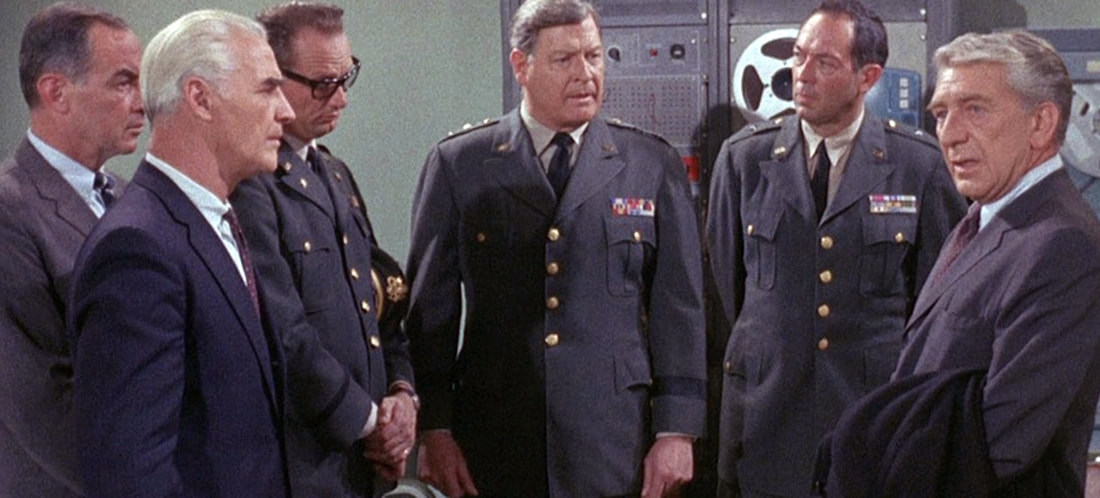Cyborg 2087:
Cinema schlock ... Or something more?
Kids today can’t begin to conceive of television offering a mere half-dozen channels (at worst) or maybe even a dozen (at best). Depending upon what the weather was like, you might be able to get one or two more via antennae, but those smaller markets oft times played silly English-dubbed imports or seemingly insane movies purchased from some comprehensive syndication library. For the record, it’s these flicks exactly that the seminal Mystery Science Theatre 3000 made its mark by lampooning, and I’ve no doubt that Cyborg 2087 is exactly the kind of thing I would’ve been subjected to as a youngling growing up in rural Illinois.
You’ll pardon me for saying that I think I’m a better person because of it.
From the product packaging:
“In the year 2087, where freedom of thought is illegal and the minds of the world’s population are controlled by governments, a small group of rebels send a cyborg, Garth A7 (Michael Rennie), back to the year 1966 to prevent a scientist from making a breakthrough that will lead to the nightmarish future. The time traveler soon discovers that he’s not alone; the opposition has sent a group of government tracer agents to prevent him from carrying out his mission …”
Cyborg is the ultimate in low, low, low budget filmmaking. It’s the kind of thing conceived quickly and – quite probably – shot just as swiftly. What plot there is – Garth has to locate the scientist enlisting the ‘coerced’ cooperation of Dr. Sharon Mason (the lovely Karen Steele) – moves at a snail’s pace, largely owed to the fact that Adreon padded his “action” sequences with far too much of the mundane: Rennie marching across the screen, his adversaries running on foot from location to location, teenagers dancing in the background while cybernetic surgery is taking place in the next room, etc. At about the time the viewer begins to wonder if there is any method to the madness, the director necessarily tightens up the reins with some exposition … but only so much that’ll keep his picture on track.
And – unquestionably – Cyborg is an odd duck of production. While there’s clearly some talent up there on the screen (besides Rennie and Steele, the film features such reliable veterans as Wendell Corey and Forbidden Planet’s Warren Stevens in key roles), Adreon can’t quite seem to keep things moving at an even pace. Arthur C. Pierce’s script takes one science fiction concept after another, and – rather than thoughtfully develop mind control, government oppression, and time travel paradox for the audience – Pierce mashes them up against one another in order to achieve a kind of intelligent ‘posture’ void of any real movement.
But … here’s the dirty little secret: I think someone tried to do just a bit more with the flick than you might think.
Why would the director and/or screenwriter put up three distinctly different eras – 2087, 1966, and (approximately) 1866 – unless they were trying to say something about the unforgiving passage of time? Were Adreon and Pierce commenting on how one civilization must fall in order for progress to be achieved while Garth is intent on unraveling that future? Were they trying to remind audiences to not be so attached to the present because – as the western town demonstrates – it’ll all fall into decrepitude inevitably anyway? Was this escapist SciFi fare covertly actually trying to remind Tom, Dick, and Harry not to get too interested in this thing called “technology” because it was likely to spell their collective doom?
The truth is that we’ll likely never know what anyone involved with the picture wanted to say (if anything) as filmmaker Chris Alexander on his commentary track reminds us that those folks involved with Cyborg have long since passed into the beyond. Still, what would they tell us if they could about their machinations? Was it all meant to be little more than an interesting side trip in the annals of forgotten cinema … or did they mean for this to be something much, much darker?
Art is what you make of it, and I don’t think there was much artistic intent behind Cyborg 2087. Still, it makes for some interesting debate.
(Mildly) Recommended.
Look, no one’s going to claim that the world is a better place for such cinema schlock as Cyborg 2087 being in it. It doesn’t offer any award-winning performances. It certainly doesn’t offer a particularly riveting narrative. And – in all frankness – you’ll quite possibly find yourself laughing more at the film’s attempt to present itself seriously while having little to no budget to speak of. However, what Cyborg 2087 does have is a heart and a soul common to so many lesser pictures of its era: it tries to be something more than the sum of its parts, but the conventions of cheaply made flicks shot for nothing more than product-to-sell will always hold it back. It gives one an interesting portrait of what moviemaking was like for the oft-overlooking 1960’s, and – if you watch closely – you might even see shades of how Science Fiction was making its grand transition from little ideas to the big, meaty ones in Hollywood.
In the interests of fairness, I’m pleased to disclose that the fine folks at Kino Lorber / Kino Classics provided me with a Blu-ray of Cyborg 2087 by request for the expressed purposes of completing this review; and their contribution to me in no way, shape, or form influenced my opinion of it.






 RSS Feed
RSS Feed